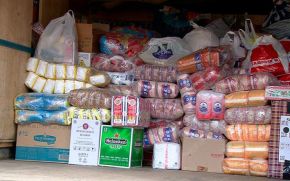Estonia, Forum, Legislation, Society
International Internet Magazine. Baltic States news & analytics
Wednesday, 24.04.2024, 13:39
Estonian MFA: global humanitarian aid system facing a major challenge
 Print version
Print version |
|---|
“There is growing need for aid. The essence of catastrophes has changed. Granting humanitarian aid no longer means a fast-paced short-term reactions, but most crisis take several years, and they are all too often repeated,” said Kaljurand. “At the same time, with crisis caused by humans, it is important to find a political solution, as extra funding alone cannot put an end to humanitarian disasters,” she added.
Humanitarian
crises have far-reaching consequences. As of today, natural disasters and
man-made crises have forced more than 60 million people to leave their homes.
The average time spent in a foreign state as a refugee is as long as 17 years.
Kaljurand says that next to disaster response, crisis prevention is gaining in
significance as well as improvement of the resistance capacity of states and a
smooth transition from humanitarian aid to development cooperation. “Rebuilding
a country after a disaster is a great challenge requiring development measures
next to immediate emergency aid. The two cannot be viewed as two separate
processes.”
Estonian humanitarian aid to other nations, provided with the objective of saving
lives and helping victims of natural and man-made disasters alike, has
increased year by year. In 2011 – 2014, the Ministry of Foreign Affairs
allocated 7.8 million euros of its budgetary means to humanitarian aid. Central
aid receivers include the most vulnerable social groups and long-term crises
next to acute emergencies. In 2015, Estonia has provided humanitarian aid to
crises hot spots in Ukraine, supported Syrian refugees in Jordan and Iraq, and
contributed to coping in Gaza. Furthermore, support has been given to Ebola
prevention in Western Africa as well as to Nepal and Vanuatu island states as
countries suffering from natural disasters.
The Ministry of Foreign Affairs acknowledges all of the Estonian people that
have contributed to the good of those in distress.
This year’s World Humanitarian Day calls on people to act for a more decent and
humane world, learn from the stories of communities suffering from humanitarian
crises, and place value in their humanity, will to survive, and right to a
decent life.
This year, UN humanitarian aid organizations endeavor to reach a total of 78.9
million people in need of help in 37 countries. The total number of calls for
help has doubled in the past ten years.
In relation to global challenges and changed conditions in the world, a new
approach is required to successfully manage the ever-increasing humanitarian
challenges. In May 2016, the very first World Humanitarian Summit is held in
Istanbul, focusing on adjusting the humanitarian aid system to the expanding
emergency needs, and asserting humanitarian principles such as humanity,
impartiality, independence, and neutrality. Central subjects include efficiency
and innovation, adequate preparation in crises management, and protection of
conflict-inflicted people.








 «The Baltic Course» Is Sold and Stays in Business!
«The Baltic Course» Is Sold and Stays in Business!

